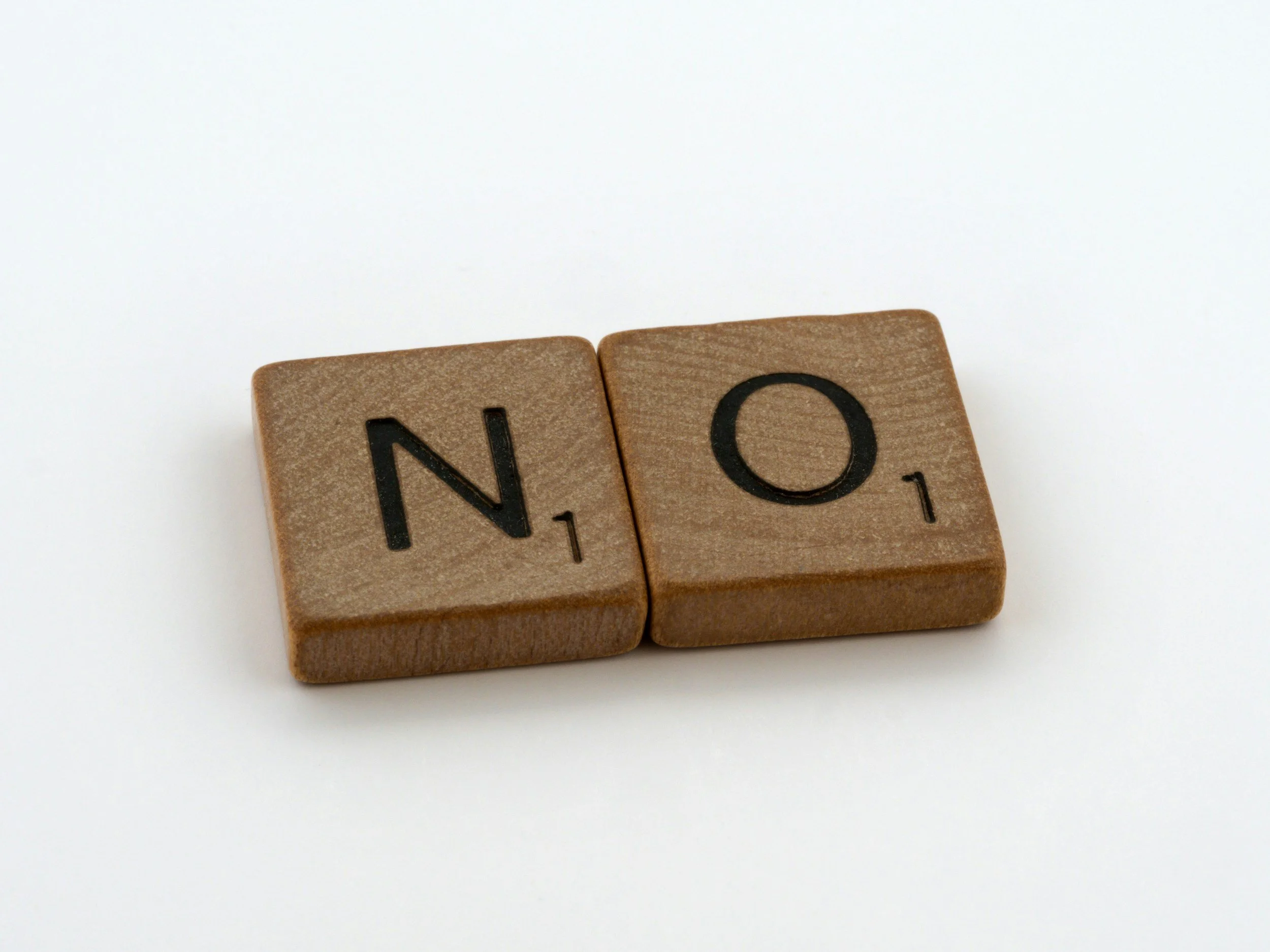Your Right to Say No - A How-to Guide
Saying "no" is a powerful form of self-respect. Whether it’s declining an extra work task, refusing a favour that drains you, or turning down plans you’re not up for—you have the personal right to say no. This guide will help you understand that right and give you practical tools to use it confidently.
Why Saying No Matters
1. Protects your time and energy
Saying no allows you to prioritise what truly matters to you. Your time and energy are limited resources, and constantly saying yes can spread you too thin. By choosing your commitments wisely, you create space for rest, creativity, and the things that bring you joy and fulfillment.
2. Prevents burnout and resentment
Overcommitting can lead to emotional exhaustion, stress, and even physical burnout. When you say yes to too much—especially out of guilt or obligation—you may start to feel overwhelmed or resentful. Saying no when needed helps you maintain balance and preserve your well-being.
3. Builds self-respect and personal boundaries
Every time you say no with intention, you're reinforcing your self-worth and showing yourself that your needs matter. Setting healthy boundaries is a powerful act of self-care—it helps you stay aligned with your values and teaches others how to treat you with respect.
4. Promotes honest relationships
Saying no fosters authenticity in your relationships. When you're honest about your limits, it creates a foundation of trust and transparency. True connections thrive when people feel free to express themselves without fear of judgment or pressure to please.
5. Safety & protection
Being able to say ‘no’ is essential for protecting yourself. If you’re not confident in setting boundaries, someone could manipulate you into harmful situations where you’re taken advantage of or mistreated.
When Should You Say No?
Knowing when to say no is a powerful way to protect your time, energy, and well-being. Here are some situations where saying no is not only okay—it’s important:
You’re already overwhelmed
If your plate is already full, adding more can lead to burnout. Saying no allows you to honor your limits and maintain your mental and emotional health.The request clashes with your values or priorities
When something doesn’t align with what you believe in or what matters most to you, saying no helps you stay true to yourself and your goals.You’re being guilt-tripped or manipulated
If someone is pressuring you through guilt or emotional tactics, it's a sign they may not have your best interests at heart. You have every right to say no in these situations.You simply don’t want to—and that’s valid!
You don’t need to justify every no. Your feelings and preferences are reason enough. Saying no without guilt is a form of self-respect.You feel you’re being drawn into a dangerous or uncomfortable situation
Trust your instincts. If something feels off, unsafe, or makes you uneasy, saying no can protect you from potential harm or regret.
Mental Shifts to Embrace
Learning to say no often starts with changing the way we think about it. These mindset shifts can help you set boundaries with more confidence and less guilt:
“No” is a complete sentence
You don’t owe anyone a detailed explanation, excuse, or justification. A simple “No, thank you” is enough. Respecting your own limits doesn't require approval from others.You’re not responsible for other people’s feelings
It’s okay to be considerate and kind, but how someone reacts to your boundary is up to them. Your job is to protect your peace—not to manage everyone else’s emotions.You can still be a good person and say no
Setting boundaries doesn’t make you selfish or rude—it makes you self-aware and emotionally healthy. Saying no when needed is part of showing up as your best self, not just for you, but for others too.
How to Say No – Practical Phrases
Polite and Firm Responses
“Thanks for thinking of me, but I’m unavailable that day”
“I’m not available for that right now.”
“I appreciate the offer, but I’ll have to pass.”
“I don’t have the capacity to take that on.”
If Someone Pushes Back
“I’ve made my decision.”
“I’d rather not explain further.”
“I understand that’s disappointing, but I still can’t.”
Repeat the sentence again
Bonus Tip: Offer Alternatives (if you want)
“I can’t help with that, but maybe [someone else] could?”
“I’m not free this weekend, but I’m open next month.”
For more assertive responses see our assertive phrases post.
LAST Points to consider
Practice Makes Progress
Like any skill, learning to say no takes time and repetition. You don’t have to start with big, intimidating boundaries—start small. Try saying no in low-stakes situations, like turning down a store promotion, refusing a free sample you don’t want, or politely declining an invitation to an event you're not interested in. These everyday moments help you build confidence and get more comfortable with setting limits.
Each time you say no, you're reinforcing the message that your time, energy, and preferences matter. It may feel awkward at first, especially if you’re used to people-pleasing, but with practice, it gets easier—and more empowering.
Respecting Others’ No, Too
Setting boundaries is a two-way street. Just as you want your “no” to be heard and respected, it’s important to extend that same courtesy to others. When someone says no—whether it’s turning down a request, changing plans, or expressing discomfort—honor it without pushing, guilt-tripping, or taking it personally.
Respecting someone else’s boundaries shows emotional maturity and builds deeper, more trusting relationships. It says, “I see you, I hear you, and I respect your right to choose what’s best for you.” By creating space for others to speak up for themselves, you foster a healthier and more balanced dynamic, one built on mutual respect—not pressure or obligation.
Final Reminder
Saying no doesn’t make you mean, rude, or unreliable. It makes you honest, self-aware, and empowered. Your time, energy, and peace matter—and you’re allowed to protect them.
